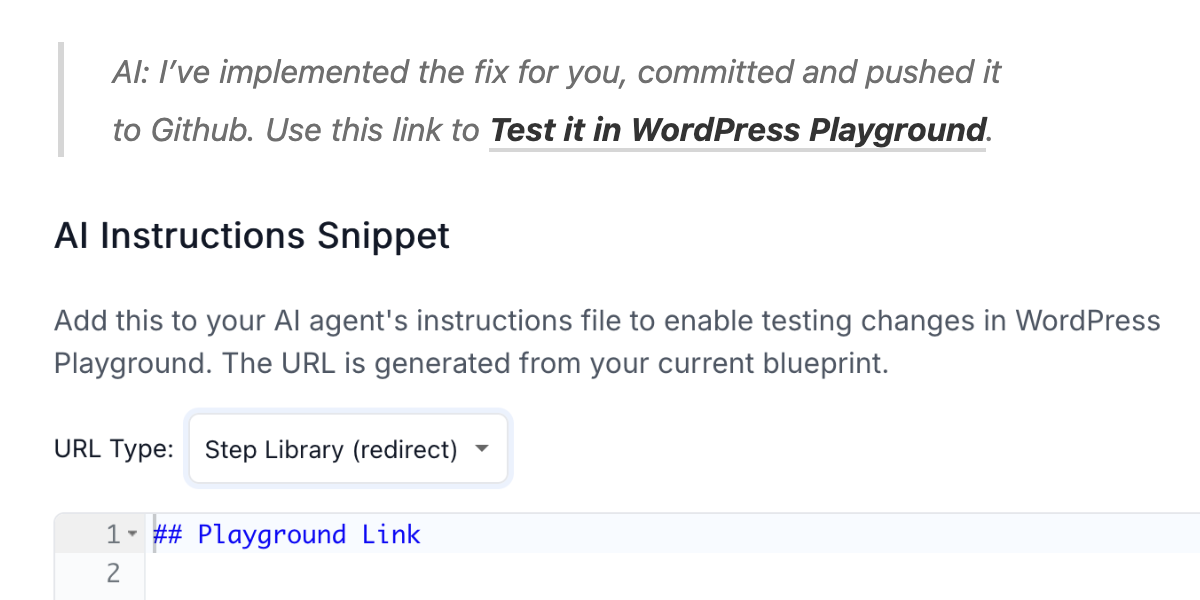
With AI coding assistants and WordPress Playground, you can now develop WordPress plugins from your phone. Here’s how to set it up.

With AI coding assistants and WordPress Playground, you can now develop WordPress plugins from your phone. Here’s how to set it up.
I have updated my Playground Step Library (which I had written about before)–the tool that allows you to use more advanced steps in WordPress Playground–so that it can now also be used programmatically: It is now an npm package: playground-step-library. Behind the scenes this actually dominoed into migrating it to TypeScript and restructuring the code…